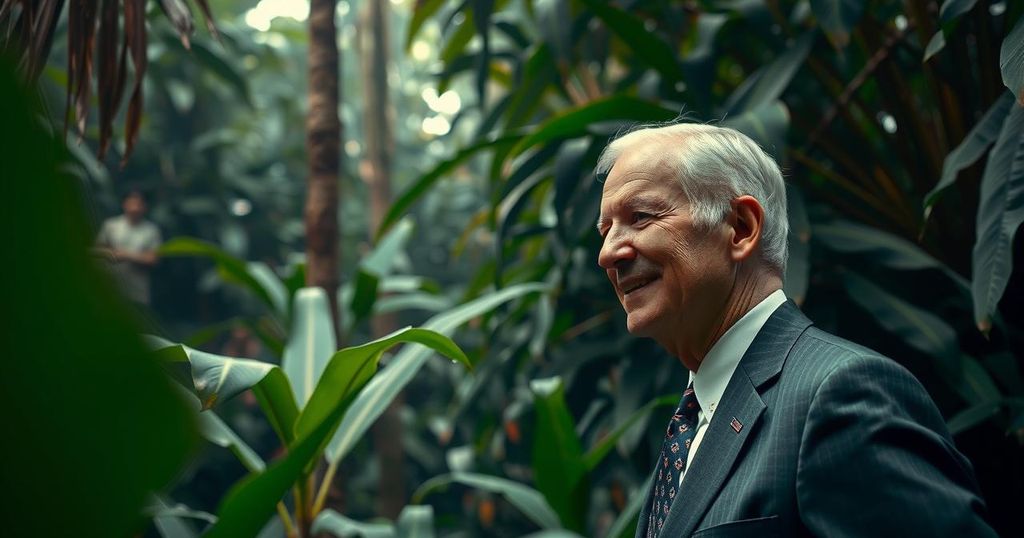Biden Makes Historic Visit to the Amazon Rainforest, Highlighting Climate Commitment
President Biden became the first sitting U.S. president to visit the Amazon rainforest, demonstrating commitment to environmental issues amidst a context of improving but still concerning deforestation rates in Brazil. His visit coincided with a pledge of significant financial support for conservation efforts, although the incoming Trump administration may pose challenges to these initiatives. The Amazon’s health remains critical for global ecological stability, and Biden’s actions reflect a continued focus on international cooperation.
On November 17, 2024, President Joe Biden made history by visiting the Amazon rainforest, marking the first time a sitting U.S. president has done so. During this significant visit, Biden surveyed the effects of climate change on the critical region, which has experienced a 30.6% decrease in forest loss in Brazil’s Amazon over the past year, the lowest rate of destruction in nearly a decade. The president was accompanied by respected climate scientist Carlos Nobre and his climate advisor John Podesta, as he analyzed extensive environmental damage from erosion and fires during a helicopter tour of the region. Biden’s administration has committed substantial international efforts to support the Amazon’s preservation, including a proposed $500 million contribution to the Amazon Fund, a crucial initiative aimed at combating deforestation and promoting sustainable development. Amid speculation about the future of U.S. climate policy with the impending Trump administration, Biden’s visit underscored a continued dedication to environmental stewardship and collaboration with local and indigenous communities. Furthermore, he announced a series of initiatives designed to mobilize investments for ecological restoration and emphasize the importance of international cooperation in tackling climate change.
The Amazon rainforest is a vital ecological region, often referred to as the “lungs of the Earth,” due to its ability to absorb carbon dioxide, a significant greenhouse gas. Approximately two-thirds of the Amazon is situated within Brazil, and it plays a crucial role in regulating moisture across South America, supporting both global biodiversity and indigenous communities. The region has faced severe environmental challenges compounded by deforestation and climate change. Recent years have witnessed rising deforestation rates, largely attributed to policies enacted by prior administrations that favored agribusiness and resource extraction over conservation. The current Brazilian administration has pledged to reverse this trend, aiming for zero deforestation by 2030. Biden’s visit comes at a critical juncture, as the potential for policy shifts under a new U.S. administration could undermine ongoing conservation efforts.
In conclusion, President Biden’s visit to the Amazon represents a pivotal moment in U.S. foreign policy regarding environmental issues. By being the first sitting president to tour this vital region, Biden emphasizes the importance of global cooperation in combating climate change and advancing sustainability efforts. His administration’s financial commitments and initiatives seek to foster partnerships aimed at preserving the Amazon. However, concerns remain regarding the continuity of these efforts should future U.S. leadership prioritize different policies. The Amazon’s preservation is not only crucial for Brazil but has profound implications for the health of the entire planet.
Original Source: apnews.com




Post Comment